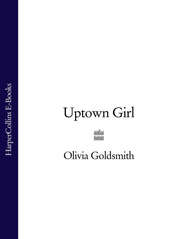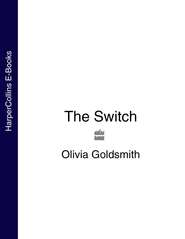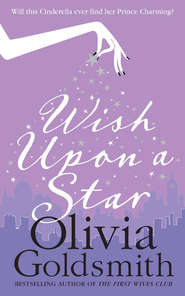По всем вопросам обращайтесь на: info@litportal.ru
(©) 2003-2025.
✖
Bestseller
Автор
Год написания книги
2019
Настройки чтения
Размер шрифта
Высота строк
Поля
To others
Only heaven.
Had anyone flung a bone from the tables of joy to Terry? Opal had given her daughter love, but is a mother’s love ever enough? Certainly it wasn’t for Terry. There had been no comfort for her. And now Opal was alone, left with only Terry’s dust to comfort her. She sat with the small metal box on her lap, and somehow it seemed as if it weighed enough so that Opal would never again be able to move from under the burden.
Now, while the Albinoni droned on endlessly. Opal merely stared at the front of the little room.
She jumped when she felt the hand on her shoulder and turned to look into the face of a woman slightly older than she. “I’m sorry,” the woman said. “Did I startle you?”
Opal nodded. The woman had a long, kind face, and Opal could see that tears had gathered on her reddened lower lids.
“I’m Roberta Fine. I worked with your daughter.”
Opal tried to gather herself together. Of course. Terry had written to her about Roberta. What was the name of her shop? The Book Stop? No. The Bookstall? Opal tried to smile and was about to say something—one of those things that people say—about how nice it was for you to come or how thoughtful you were to remember, when the woman’s face seemed to reconfigure itself, morphing into a rictus of sorrow. She burst into noisy, hysterical sobs.
“I’m so sorry. I’m so sorry,” she cried. After that Opal couldn’t understand much of what she said except for something about letting Terry go, and how it hadn’t been Terry’s fault, and how Roberta felt so responsible. “I just had no idea,” Roberta gulped. “I didn’t know the job meant so much to her. I can’t tell you what this has done to me. But it must be so very much worse for you.” Once again the woman’s face collapsed, and she began searching in her neat black purse for a handkerchief.
Opal handed her one of her own. She also reached out and patted Roberta Fine’s thin, black-dad shoulder. The woman did look ravaged. She had fired Terry, apparently. But for her to think that Terry had killed herself over that! Well, Opal had lived long enough to know that everyone thought that their own experience was the true reality, the center of the world. Now she took Roberta’s long, thin, damp white hand in her own ruddier one. “It’s not your fault,” Opal said. “Please, please don’t think that for a minute. Losing the job didn’t do this to Terry. If it’s anybody’s fault, it’s mine. I shouldn’t have encouraged her. I shouldn’t have pushed her—”
“But you inspired her! She loved you, she admired you. She talked about you all the time.” The woman paused. “Oh my God, you don’t think this is your fault, do you?” The two women looked into each other’s eyes for an endless minute. “Perhaps I’ve been very foolish,” Roberta said.
“Perhaps I have, too,” Opal agreed. “And perhaps blaming ourselves is very self-indulgent. Disrespectful of Terry, too.”
Roberta continued to look into Opal’s eyes. “It is easier to feel guilt than pain, isn’t it?”
Opal nodded. “Yes.” She paused. “It’s also easier to feel responsible than to feel powerless.” Roberta looked away, then nodded.
After a moment Opal reached into her own battered purse and took out the letters, all of Terry’s rejection letters. “If anyone is responsible, here are the culprits. But I think we have to give Terry the dignity of making a choice. She was tired of all this. They’d worn her down.”
Roberta took the pile of letters and began to thumb through them. She pulled out her glasses, put them on, and read one letter after another, shaking her head and making small clicking noises with her tongue. “Oh, really!” she said to one letter and pushed it to the bottom of the stack. At another one she silently shook her head. After a few more, she looked back at Opal. “But I had no idea,” she said. “I mean, I knew about Terry’s work, but I had no idea … Do you know the trick Doris Lessing pulled?”
Opal shook her head. “Doris Lessing submitted a new manuscript of her own to four or five publishers. But she used a different name. And she was rejected by all of them.” She paused. Then, gently, she asked, “Is the book any good?”
Now Opal felt tears rising in her own eyes. “I don’t know,” she admitted. “The parts I read were brilliant, but I never read the whole thing.”
“Well, read it now,” Roberta urged.
Then Opal’s tears overflowed, and though she kept calm and could speak, she couldn’t wipe her eyes quickly enough to hide them. She sniffed. “I can’t read it now. Terry has destroyed it. There’s nothing left but ashes in her fireplace.” Opal looked down into her lap. “There’s nothing left of her life except for ashes.”
Roberta reached out and patted Opal’s arm, briefly and with the lightest touch imaginable. Opal could tell that-like herself—Roberta was not a huggy person. “Tragic,” was all that Roberta said for a few minutes. And then, “You must, you must bring those ashes of the manuscript back with you as well,” Roberta said. “They are as much a part of Terry as whatever is left in that box.”
Opal looked up, and—for the first time since she had gotten the call, the phone call from the lady detective with the terrible news—she smiled. “Yes. Of course. That’s what I’ll do.” And somehow the thought of mingling her daughter’s ashes with the manuscript ashes not only made perfect sense but also gave some small comfort to Opal O’Neal.
“Do you want any help?” Roberta asked. “Is there anything I can do?”
“You’ve already done a lot for me,” Opal told her.
“And you for me,” Roberta responded. Then she took out a card and handed it to Opal. “My shop is only a few blocks away,” she said. “Come by, or call, or write. And let me know if you need any help or want a ride to the airport.”
Opal thanked her, and then, somehow, she found the Strength to stand. Together the two women walked slowly out of the graceless parlor.
Opal had finished packing,, and her suitcases stood by the door. She had given away all of those things of Terry’s that could be of any use to the homeless, then carried out two large bags of garbage, which she left in the rubber containers at the side of the door. Last, she had swept up the ashes from the fireplace grate and carefully added them to the contents of the metal box. She had washed her face and hands, put on some lipstick, combed her gray, permed curls, and made two final telephone calls, to ConEd and Nynex to terminate service. Then she took one last look around the room and went to the door, ready to leave.
But it seemed that, despite the few belongings of Terry’s that she’d saved, there was more luggage than Opal could handle. She tried to lift a suitcase and a bag in each hand, but that was too heavy and awkward. She couldn’t get through the door. She would have to make two trips, and she was afraid to leave anything on the New York sidewalk—even for a moment—while she went back in to get the remaining baggage. She reached into her purse for the keys and pushed all the luggage into the hall. She thought for a moment of calling Roberta Fine for help, but that was silly. She would just have to inch it all out, rather like a sheepdog moving a flock. But as Opal got to the front of the hallway, one of the bags she was pushing fell against the super’s door. And, surprisingly quickly, he flung it open.
“Oh. It’s you.” He looked down at the little herd of luggage and back at Opal. “You leaving?” he asked. He was a master at stating the obvious. Opal merely nodded. “You clean out the apartment?”
Really, he was beneath contempt. But Opal merely nodded again. What was his name? Some name unknown in Indiana. Aiello. That was it. But she didn’t know if it was his first name or his last. Well, she didn’t have to speak to the brute.
“I gotta get those keys back,” Aiello told her. Wordlessly Opal reached into her bag and handed them to him.
“Ya might wanna take a cab, what with all that luggage and all.”
He didn’t even offer to help her, but Opal was not surprised. She just kept sliding the bags toward the front door.
“And you might wanna clean out the mailbox,” he continued, in his very limited attempt to be helpful.
“Mailbox?” Opal asked. “Where is the mailbox?” She imagined a row of rural tin canisters on posts, each with its little flag raised or lowered, but surely they didn’t have mailboxes like that here. Aiello shrugged and with a twitch of his shoulder indicated the tarnished brass fronts inserted into the wall behind him. The whole affair looked like the grates of a heat register to Opal.
“These are the mailboxes,” he said. “Hers was number two.”
“How do you open them?” Opal asked. “With the key, the little key.”
“Oh, yes, one of the ones you’ve just taken,” Opal said coolly.
Aiello shrugged and handed the keys back to her. “There’s a lot of stuff in there,” he said, looking through the grate.
With a sigh. Opal took the key chain and turned to the boxes. She inserted the smaller key into the round keyhole at the bottom of the box but could not get it to turn.
“Sometimes they’re a little tricky,” Aiello said. “Ya gotta dick around with it.” He stopped, embarrassed “I. mean ya have to screw around with it.” He felt the inadequacy of his correction. “You know,” he said, exasperated. “You know what I mean.”
Opal pushed the key in a little deeper, but it still wouldn’t turn, so she pulled it out a bit, jiggled it, and found the place where it began to rotate, what was it with New York City locks? None of them seemed cooperative. Finally, the key turned 180 degrees. She felt the lock disengage, and by pulling on the key itself, she lifted the front of the box.
A couple of envelopes fell onto the dirty tiled floor. There was also some kind of newsprint circular and two magazines. The Writer and Poets & Writers, but both of them were badly bent and torn because the major space in the box was taken up by a large jiffy bag, a huge padded envelope sealed with packing tape. It was wedged into the box so tightly that Opal, her hands shaking, couldn’t pull it free.
“Here. Let me.” Aiello pulled out the heavy package, tearing the wrapper and then handing it to Opal. He turned back to extricate the other mail and pick up the pieces that had fallen. But Opal didn’t care about any of that. Right there, right there in the dirty, dark hallway, she tore into the big envelope and pulled out the manuscript inside. It was like being a midwife at a birth. Opal let the caul drop to the floor, exposing the gift inside. She voraciously read the cover letter.
Dear Ms. O’Neal,
In going through our files, we have found this photocopy of your submission from last year and, although I see in my records that we returned the original to you, I thought you might want to have this copy.
Opal didn’t bother to look at the signature. Instead she tore the letter off the pile and looked. Yes! There was the title page. The Duplicity of Men by Terry O’Neal. The manuscript! Terry may not have meant to leave it behind, but here it was. Opal clutched it to her chest, a prize far more exciting, far more precious, than buried treasure or a winning lottery ticket. She could resubmit it. She would resubmit it, and she would get these jaspers in New York to pay attention. She didn’t care if they’d said no to Terry, or even to Doris Lessing. She would get them to read and publish her daughter’s masterpiece. Terry would not have lived her life in vain after all. Opal hadn’t misled her. And she would prove it. While the publishers may have ignored Terry in life, they would acknowledge her now. Though Terry may have lived in obscurity, in death she would be known.
“It’s something good?” Aiello asked. And, to his astonishment, the middle-aged woman kissed him.
12 (#ulink_5f71674c-e0aa-5a5e-b05e-228781ef15a2)
Writing is a form of therapy; sometimes I wonder how all those who do not write, compose or paint can manage to escape the madness, melancholia, the panic fear which is inherent in a human situation.











